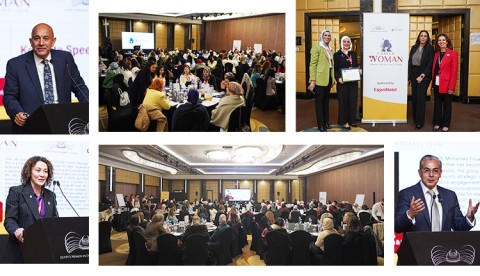The European Union (EU) initiated the first phase of the Carbon Border Adjustment Mechanism (CBAM), which is the world’s first system to impose CO2 emissions tariffs on imported goods such as steel, cement, and other products as the EU tries to stop more polluting foreign products from undermining its green transition.
The planned tariff has raised concerns among trading partners, with China’s top climate envoy, Xie Zhenhua, urging countries to avoid unilateral measures like the EU levy.
Carbon tariff is a supplementary measure taken by developed countries to alleviate the decline of domestic product competitiveness and carbon leakage caused by unilateral carbon emission reduction policies, output, and the economic impact of welfare.
The EU will not start collecting CO2 emission charges at the border until 2026. However, the initial phase of CBAM, which begins now, requires EU importers to report the greenhouse gas emissions associated with the production of imported volumes of various goods, including iron and steel, aluminum, cement, electricity, fertilizers, and hydrogen.
From 2026 onwards, importers will need to purchase certificates to cover these CO2 emissions, ensuring that foreign producers are on an equal footing with EU industries that must buy permits from the EU carbon market when they pollute.
The objective of the CBAM is twofold. Firstly, it aims to encourage a global shift towards greener production practices. Secondly, it seeks to prevent European manufacturers from relocating to countries with lower environmental standards and losing out to foreign competitors while they invest in meeting the EU’s targets to cut emissions by 55% by 2030 compared to 1990 levels said European Economy Commissioner Paolo Gentiloni.
Companies in the EU, Britain, and Ukraine do not anticipate significant immediate impacts during the trial phase, according to Reuters.
The European Commission asserts that the border levy complies with World Trade Organization rules, treating foreign and domestic firms equally and allowing deductions from the border fees for any carbon prices already paid abroad.
“CBAM is not about trade protection. It is about protecting the EU’s climate ambition and seeking to raise the level of climate ambition worldwide,” Gentiloni said.
European steel industry association Eurofer, which has been at the forefront of those in Europe seeking a border tariff, views the initial phase as a test to determine how effective CBAM is in avoiding industrial production shifting to countries with less ambitious climate policies.
Among Europe’s significant trade partners, China’s foreign ministry, Turkey’s trade ministry, and a U.S. official declined to comment on the launch.








